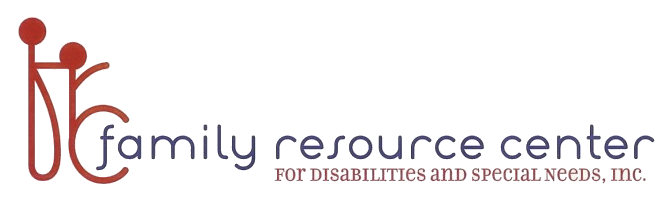THE PARENT MANUAL
Please check out our recently revised edition of the Parent’s Manual on Special Education Services. The Manual includes information on education laws, early intervening services, special education programs, dispute resolution, and effective advocacy practices. A section of the Manual provides key information in Spanish. You will find new content and even more useful, relevant, and high quality resources. Please feel free to share this great resource with others. This is a large document, it may take some time to load.
Special Education Crash Course
Parents should be prepared to participate in the important decision making processes that guide their child’s Individual Education Program. This handout is designed to provide a review of the essential elements in obtaining and understanding the special education services available for children with disabilities in public school.
Project REST (Restraint: Efficacy, Safety, & Training) Manual of Recommended Practice
With funding from the Developmental Disabilities Council, Office of the Governor, the FRC examined the practice of using restraint on children with developmental disabilities in the public schools. After collaboration with educators, attorneys, psychologists, social workers, child advocates, and parents, Project REST developed a comprehensive guidebook to be used as a resource by parents, educators, and advocates and as a guide in developing protocols and procedures. Project REST endorses the use of Positive Behavior Support as the preferred method to change challenging behavior in children.
Transition Toolkit
This Transition Toolkit is a resource for families that can be used to maximize their contributions to transition planning. Transition planning should be based on a solid working knowledge of the array of postsecondary options that relate to education, employment, housing, health services, recreation, disability entitlements, and community access. Parents (and students to the greatest extent possible) must consider all aspects of transition as they work with the IEP team to assure programming that accurately addresses the student competencies necessary to reach identified post-secondary goals.
Standards for Evaluation and Eligibility Determination (SEED), South Carolina State Department of Education,
Outlined in state and Federal laws and regulations are the methods by which children are determined eligible for special education services. Revised in 2011, SEED explains the evaluation methods that should be used to determine eligibility for services under the Individuals with Disabilities Education Act (IDEA).
Individual with Disabilities Education Act – IDEA 2004
IDEA was originally enacted by Congress in 1975 to ensure that children with disabilities have the opportunity to receive a free appropriate public education, just like other children. The law has been revised many times over the years. The most recent amendments were passed by Congress in December 2004, with final regulations published in August 2006 (Part B for school-aged children) and in September 2011 (Part C, for babies and toddlers). So, in one sense, the law is very new, even as it has a long, detailed, and powerful history.
SCAS Guardian Handbook
This booklet was developed by the South Carolina Autism Society (with funding from the Developmental Disabilities Council) to assist parents of a child or young adult with all developmental disabilities. The booklet contains information regarding guardianship and conservatorship, wills, trusts and estate planning for individuals with disabilities.
Notice of Child and Family Rights in the BabyNet System
BabyNet is South Carolina’s Individuals with Disabilities Education Act (IDEA) program for infants and toddlers up to age three with developmental delays, or conditions associated with developmental delay, and their families. This Notice of Child and Family Rights is written to inform you of rights and responsibilities under IDEA Part C that governs BabyNet program services.
Medicaid for Working Disabled
The Working Disabled program provides Medicaid benefits for those individuals who have a disability who work and whose net income is less than 250% of the Federal Poverty Level. Medicaid benefits assist with hospital visits, physician visits, durable medical equipment, payment of Medicare Part B premiums, etc. Download the brochure provided by the Department of Health and Human Services.
Adult Students with Disabilities Education Rights Consent Act (Consent Act)
The Consent Act was recently passed by the South Carolina General Assembly and signed into law by Governor Haley on June 5, 2016. South Carolina Protection and Advocacy has prepared a short fact sheet for families to help better understand and utilize this new legislation. Download the P&A fact sheet by clicking: Summary of the Adult Students with Disabilities Educational Rights Consent Act-1
Achieving a Better Life Experience (ABLE) Act
The Stephen Beck, Jr., Achieving a Better Life Experience Act (ABLE) Act was signed into law on December 19, 2014 after many years of advocacy and bipartisan work in both the House and Senate. The law allows eligible individuals with disabilities the ability to establish “ABLE accounts” for qualified beneficiaries that resemble the qualified tuition programs, often called “529 accounts”, that have been established under that section of the tax code since 1996. Assigned to states to manage, SC completed this work in March 2016 and ABLE is now accessible. For more information: ABLE Account – Things You Should Know

